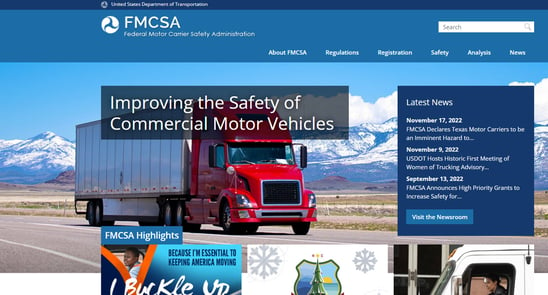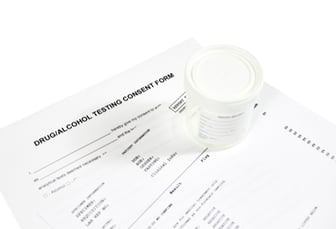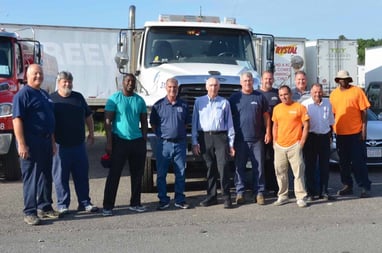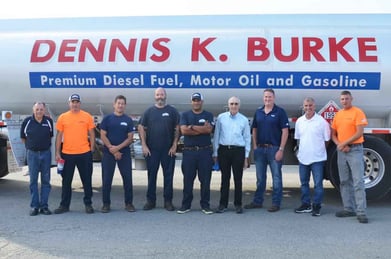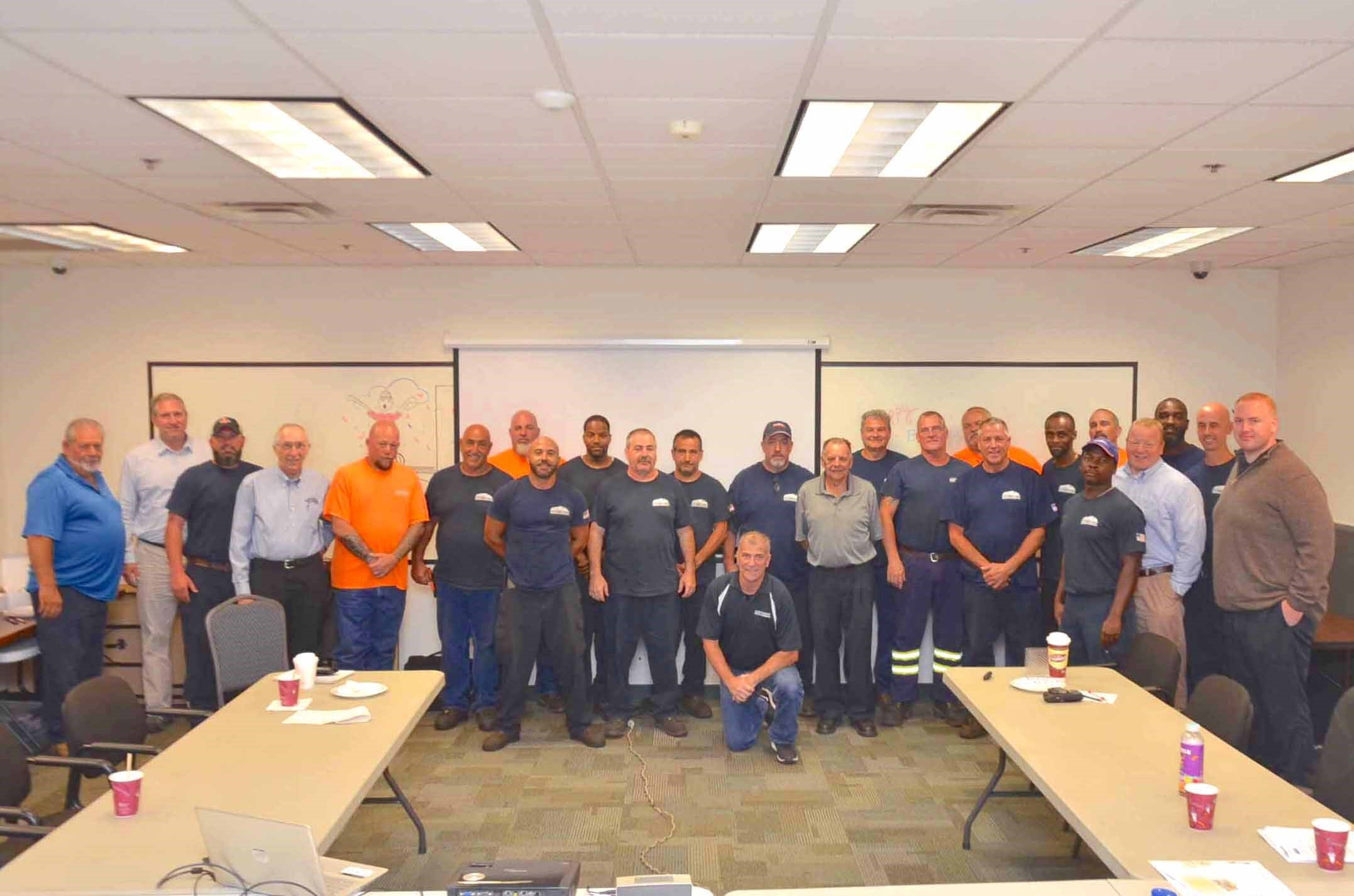Site Safety: Ten Ways to Ensure Safe Delivery
One of the major items that we focus on when it comes to ensuring safe deliveries for our drivers and customers alike is ensuring that sites are assessed for conditions conducive to safety, and any issues that are present are corrected.
Our Sales & Safety departments work with new sites to ensure tanks are compliant, and there are no obvious or foreseeable risks to our drivers, our customers' site, or the environment that would occur in the event of a normal fuel or lubricant delivery. Additionally, drivers report back on site issues as they arise in the field.
We thought it might be helpful to review some of the main issues we have seen or heard about in the field so they were easily accessible. So, below is a top ten list of site issues you can check for to make sure your vendor can deliver safely to your site
1) Safe access: Ensure there are no trip or fall hazards for drivers or delivery agents. In the winter, this includes making sure access ways are free of snow and ice and that markings are clearly visible and not obstructed by snow. If your site has an elevated or difficult to reach fill, make sure there is a stable platform or ladder with appropriate railings for drivers to stand on. Pallets, buckets, or other makeshift fixes are not acceptable, as they are unsafe for drivers.
2) Know your tank: We sometimes come across "blind fills". These are fills where there is no way for drivers to determine the current volume or ullage (aka: space inside) of the tank. A fill can be considered “blind” if its setup makes it impossible to stick to determine the height of product inside. It could also be “blind” as the result of a malfunctioning/broken gauge, or lack of a tank chart to compare stick readings against. This is a major spill risk, and something to be mindful of when assessing your site compliance.
3) Clean, empty spill or "overflow" buckets. Spill buckets are liquid tight containers around both underground and aboveground fill pipes. It is critical to ensure they are clean and dry, as the spill bucket is the last line of defense against small drips, or leaks caused by hoses and equipment during a delivery. Ensuring any rain water that may have collected inside is a great way to help prevent water from contaminating your tank, and help to avoid spills. (You can read more about spill buckets and their role in safe delivery here).
4) Ensure tank fittings are secure and properly sealed. Tank Fittings leaking small amounts of fuel during deliveries is an avoidable hazard for the environment and your site.
5) Ensure you have the proper tank fittings and confirm that equipment with your vendor (hopefully us!) This includes Scully fittings, Ever-tite fittings, etc. As a reminder, Dennis K Burke drivers can never straight-pipe gasoline!
6) Ensure that your tank has proper venting and it is working properly. Vent issues are a major cause of spills, overfills, and other avoidable problems, it pays to double check!
7) Make sure your tank is PROPERLY Labeled. Improperly labeled tanks are a major risk for cross-drops, as potentially very unsafe generally. Always ensure you have compliant, correct tank labeling. If you need help procuring tank labels or guidance on what is required, reach out to your rep and they can help.
8) Make sure overfill prevention devices are calibrated correctly and are in proper working order. Overfill prevention devices are crucial in preventing spills and ensuring the safe delivery of fuel or lubricants. These devices are designed to automatically shut off the flow of product once the tank reaches its maximum capacity, preventing overfills and potential environmental hazards.
9) Know your tank size and it's maximum volume. Generally, tanks can be filled to up to 90% capacity (ie a 1K tank can take 900 gallons from empty, not 1000g). Keeping this in mind when ordering helps minimize risk of overfill.
10) Tank maintenance: Consult with your tank service company to determine the proper maintenance schedule. Like most things, routine maintenance will help ensure your storage tank has a long, safe life.

